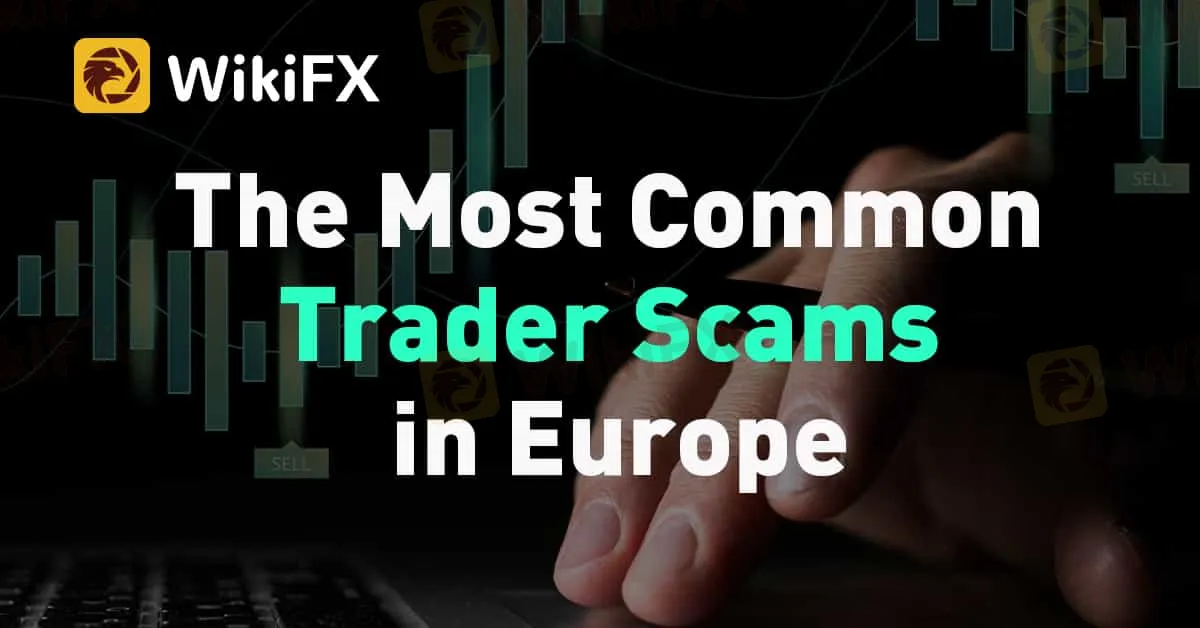简体中文
繁體中文
English
Pусский
日本語
ภาษาไทย
Tiếng Việt
Bahasa Indonesia
Español
हिन्दी
Filippiiniläinen
Français
Deutsch
Português
Türkçe
한국어
العربية
The Most Common Trader Scams in Europe
Abstract:While Europe provides a thriving environment for traders, it is essential to be aware of the potential scams that can threaten their success. Unfortunately, the financial industry is not immune to fraudulent activities, and traders must remain vigilant to protect their investments.

While Europe provides a thriving environment for traders, it is essential to be aware of the potential scams that can threaten their success. Unfortunately, the financial industry is not immune to fraudulent activities, and traders must remain vigilant to protect their investments.
One prevalent scam in Europe is the Ponzi scheme, where unscrupulous individuals or companies promise high returns on investment but use funds from new investors to pay off previous investors. Eventually, the scheme collapses, leaving investors with substantial losses. Traders should exercise caution and thoroughly research investment opportunities before committing their capital.
Another common scam is the unauthorized broker. These individuals or firms operate without proper licensing or regulation, making them susceptible to fraudulent activities. Traders should always verify the credentials of brokers, ensuring they are registered with the appropriate regulatory authorities.
Phishing scams are also a significant threat to traders in Europe. Scammers often send emails or create fake websites that mimic legitimate trading platforms, aiming to steal sensitive personal information or login credentials. It is crucial to exercise caution when providing personal information online and verify the authenticity of any communication received.
Signal scams, where individuals or companies offer trading signals or strategies that promise exceptional returns, are another common trap. Traders should be wary of extravagant claims and carefully assess the credibility and track record of signal providers before subscribing to their services.
Pump-and-dump schemes are yet another scam that traders need to be cautious about. In these schemes, manipulators artificially inflate the price of a specific asset through false or misleading statements, enticing unsuspecting traders to buy. Once the price reaches a certain level, the manipulators sell their holdings, causing the price to plummet and resulting in significant losses for those who bought in at inflated prices.
As traders navigate the European financial markets, it is crucial to remain vigilant and protect themselves from scams. One valuable resource to aid in this endeavor is WikiFX. With its extensive database of brokers, WikiFX provides reliable information, reviews, and ratings to help traders identify trustworthy brokers and avoid falling victim to scams. Visit WikiFX today and safeguard your trading journey.

Disclaimer:
The views in this article only represent the author's personal views, and do not constitute investment advice on this platform. This platform does not guarantee the accuracy, completeness and timeliness of the information in the article, and will not be liable for any loss caused by the use of or reliance on the information in the article.
Read more

Georgia Man Charged in Danbury Kidnapping and Crypto Extortion Plot
Georgia man James Schwab charged in Danbury kidnapping tied to $230M crypto heist. Plot targeted couple for ransom after Miami altercation with son.

March Oil Production Declines: How Is the Market Reacting?
Oil production cuts in March are reshaping the market. Traders are closely watching OPEC+ decisions and supply disruptions, which could impact prices and future production strategies.

How to Calculate Leverage and Margin in the Forex Market
Leverage amplifies both potential profits and risks. Understanding how to calculate leverage and margin helps traders manage risks and avoid forced liquidation.

Galaxy Digital Settles $200M in Luna Token Manipulation Case
Galaxy Digital pays $200M to settle Luna token manipulation probe by NY regulators, linked to TerraUSD’s 2022 crash, impacting crypto market stability.
WikiFX Broker
Latest News
The Withdrawal Trap: How Scam Brokers Lure Victims into Paying More
FCA to Investors: Think Twice Before Trusting These Brokers
Trump\s tariffs: How could they affect the UK and your money
Trump gambles it all on global tariffs he\s wanted for decades
TradingView Brings Live Market Charts to Telegram Users with New Mini App
Trump tariffs: How will India navigate a world on the brink of a trade war?
IG Group Acquires Freetrade for £160M to Expand UK Investment Market
U.S. March ISM Manufacturing PMI Released
Should You Beware of Forex Trading Gurus?
Exposed by SC: The Latest Investment Scams Targeting Malaysian Investors
Currency Calculator







